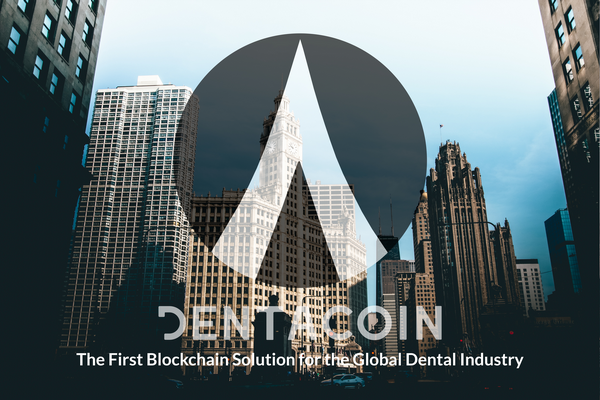Bitcoin has profited from the PERCEPTION that it is scarce, but that perception is WRONG
Disclaimer: The market is still learning about cryptocurrencies, and so it’s not surprising that someone with no formal training in Economics will make some beginners’ mistakes. Serious students of financial systems will spot them and correctly allocate resources toward blockchains and projects that hold the greatest long-term promise.

The Road to Cryptocurrency Value
The crypto-world describes two ways to achieve value in a cryptocurrency. It has suggested that “saver coins” are the best way to achieve lasting savings. The argument is that a rising price, such as Bitcoin has enjoyed, is an important deflationary component to successful long-term savings.
“Spender coins”, on the other hand, are theoretically inflationary and are not good long-term stores of value. The argument is that as the price of everything goes up, a coin that actually buys things will automatically decrease in value. According to “experts” and many recent blog posts, this makes “spender coins” a poor choice as a way to build value over the long-run.
Problem #1
This line of thinking has many mistakes, but the greatest one is a complete misunderstanding of the meaning of value. A currency – crypto or otherwise – only has value because it can be converted into something the holder wants. Dollars can be converted into a house or a car or a meal, so dollars have value.
What individuals who argue that Bitcoin is a “saver coin” forget is that Bitcoin only has value because it can be converted into dollars! While the original intention was to create a way for anonymous transactions, most people own Bitcoin for the potential price appreciation. They have no intention of ever buying anything with their Bitcoin without first converting the cryptocurrency into dollars (or Euros or some other national currency).
It’s true that some retailers are beginning to accept Bitcoin as payment, but the bill that is being paid is still expressed in dollars! Accepting Bitcoin is just a way to make paying in dollars (or Euros or some other national currency) easier. The retailer does the conversion to dollars, and gets a marketing edge over competitors by accepting Bitcoin.
Problem #2
Acceptance and use determine value, not intention. The price of Bitcoin has skyrocketed because more and more people are accepting it as a legitimate investment. It’s that simple. Any coin that grows in acceptance and use will see an increase in value. This happens with national currencies too. A loss of confidence in a national currency causes an increase in the acceptance and use of dollars (or Euros or some other national currency) in that nation.
So a coin like Dentacoin that is growing in acceptance and use in the global dental industry should see an increase in value, even though it is a “spender coin”. It will be deflationary and a long-term “saver coin” even though it is supposed to experience an erosion of value due to inflation in the upcoming years, until 2042, when the planned annual distribution will be completed.
In addition, acceptance and use for a “spender coin” like Dentacoin means getting a dental treatment, dental supplies or a dental review with the cryptocurrency. Acceptance and use for Bitcoin means being able to quickly and easily convert it into dollars. A single incident where multiple investors cannot do this – known in financial circles as a liquidity crisis – would damage Bitcoin’s acceptance and a part of its value.
Problem #3
No one can overcome the laws of supply and demand over the long run. Gold has value in part because it is rare. All the gold that has ever been mined in the history of the world would fill less than 3 1/2 Olympic swimming pools. Bitcoin has profited from a perception that it is scarce, but that perception is a mistake.
First of all, every Bitcoin can be broken down into 100 million Satoshi. This is the real unit of the cryptocurrency. In comparison, the total amount of Dentacoin that will ever be issued is less than the current supply of Bitcoin units (a.k.a. Satoshi) currently on the market. In addition, new Bitcoin is being added to the supply continually.
While much has been said about the “total supply” of Bitcoin as a fixed amount, the reality is that “hard forks” in the Bitcoin blockchain have eliminated this limit. Although the new cryptocurrencies have names like “Bitcoin Cash” or “Bitcoin Gold”, they have value because of their association with Bitcoin and effectively increase the total supply of the Bitcoin “brand”.
So, What is Value?
The acceptance and use of a cryptocurrency gives it real long-term value. This is the next development in the world of blockchain, and it is already taking place. Political arguments regarding de-centralized authority are less important than the real-world goods and services that can be obtained with the coin.
As a cryptocurrency designed for the global dental industry, Dentacoin is tied to the value of the services it buys. An increasing cost of services will increase the value of Dentacoin. Keep in mind that this is only a measure of value, so better services at a lower price – better value – will also be reflected in the market price of Dentacoin.
The Dentacoin Assurance smart contract is another significant value creation opportunity. The unique approach – which will only be available through the Dentacoin Ecosystem – aligns the financial incentives of both dentists and patients in achieving better dental health. This value should also be reflected in the future market price of Dentacoin.
